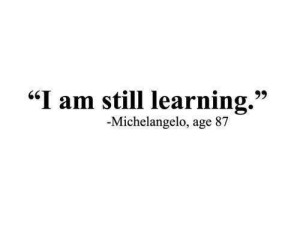What is it that drives us to seek truths or cling to culturally accepted beliefs? When faced by others who have different beliefs, why do we at times feel so threatened? We seek others who tend to hold our viewpoints and when around those who we differ with we may refrain from intently listening to their viewpoint. In conversation we formulate the words in our minds to refute what they are communicating while they are talking to us instead of listening to what they are saying. Being right is justifying. It is validating. It brings us worth and value. For example, as a parent being “right” brings us security and a sense of role fulfillment. However, is it necessary to be “right”? Does emphasizing a “correct viewpoint” bring more issues and problems than simply “letting things go”?
The psychology/counseling fields discourage the concept of a “right” or an absolute way of being or thinking. This is called the “righting reflex”. Most people can appreciate this needed aspect of a therapeutic or psychological approach. Feeling accepted, appreciated, and acknowledged are intrinsic human needs. People come to therapy to escape the outside polarized world of “right and wrong” and allow themselves the opportunity to be free. Free to be themselves without judgement. We all want to fit in and we want to belong with something greater than ourselves. However, we will all feel rejection at some point. This perception of rejection may not be a total rejection of self but simply a rejection of “part” of self, such as our ideas, thoughts, or opinions. However, we tend to guard these parts of self as if they are part of who we are as individuals. We cling on to our believe systems as if it is who we are. When our ideas, or opinions, are refuted by others we can tend to feel “less than”. There is a disruption of our perceived sense of self and reality and this doesn’t feel good! If we can appreciate that we all have a need to be acknowledged and appreciated, it’s possible that we can better understand our own “righting reflex”. Is the “need to be right” more about the person we are trying to convince or is it more about protecting that part of us that seeks approval and the need to be validated?
Even more difficult to navigate is our communication with our children. While it may be easy to walk away from a conversation with a friend or co-worker, the emphasis on being “right” can be especially difficult to give up when we are dealing with our kids. We may tend to think “I know better and it is my job as a parent to make sure they know what is right”. That makes sense, right? How else is a child supposed to learn? Unfortunately for our parental urge to protect, the learning process for a child has a lot to do with their own experiences and learning from their mistakes. As parents we can only do so much. This fact can lead us to feel vulnerable and anxious. We simply cannot hold our kids hands, nor can we force them to learn anything. They have to be willing to accept it. We know this is true as we were children and young adults once finding our way through life feeling out our own boundaries and self-identity.
This look inward at our perceptions of “right and wrong” can be a great opportunity to learn about self. We have the ability look internally and check our intentions or motivations. We may end up asking ourselves “Why do I need to have all of the answers?” or “What if we are both right and both wrong all at the same time? What does that mean?” The questions are endless. The process seems to be full of opportunity to expand one’s worldview, though probably not without some discomfort. None of that matters unless we have the intention to listen and understand more and project less. Are we trying to make progress or be right? Are we seeking happiness or do we want to be right?



Lots of people (myself included) can equate being ‘wrong’ as somehow failing –